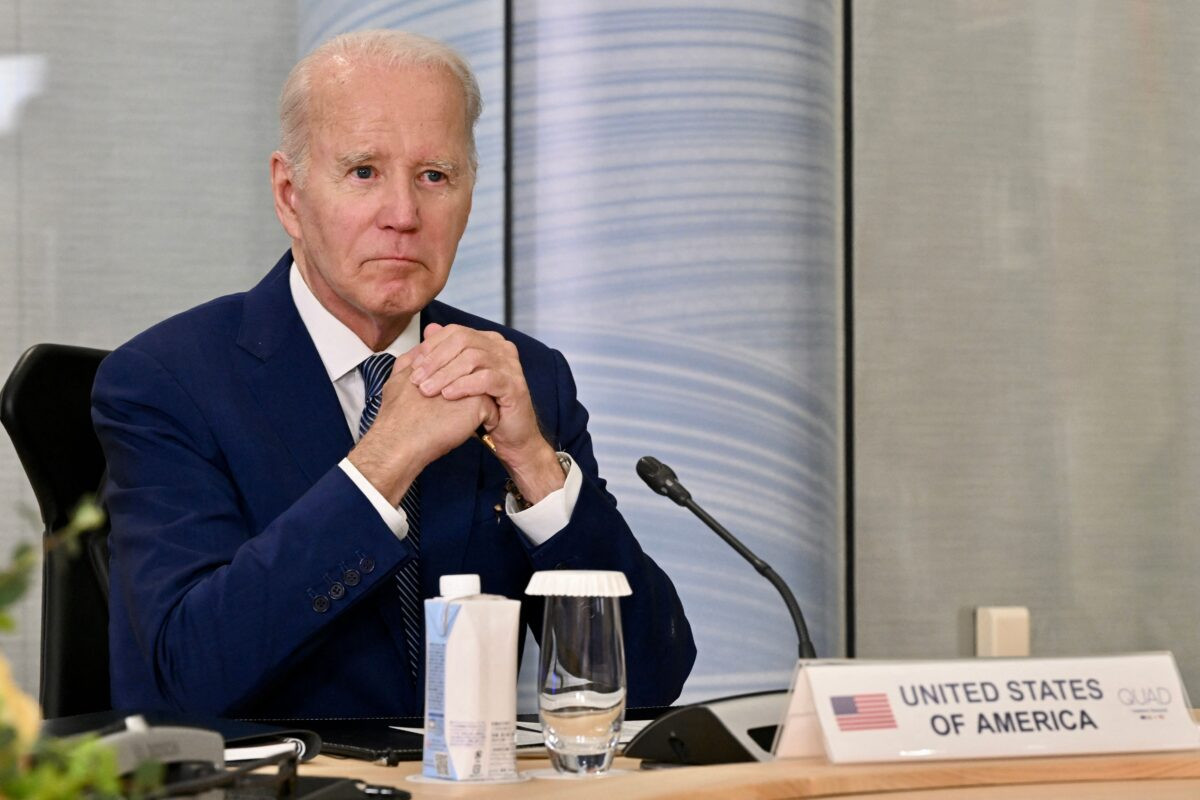

Debt ceiling debate between White House and GOP heats up over weekend, with both sides trading criticism
HIROSHIMA, Japan—President Joe Biden has asked his negotiators to coordinate a call with House Speaker Kevin McCarthy for Sunday morning, U.S. time, after he concludes his G7 meetings on the last day of the summit in Japan.
The White House has engaged in a heated exchange with Republicans over the debt ceiling negotiations that stalled after reaching no agreement on Friday night.
Meanwhile, Biden has been in Hiroshima talking with leaders of other Group of Seven (G7) nations, including Japan, the UK, France, Germany, Canada, and Italy, for the past three days. Biden is scheduled to return to Washington from Hiroshima on Sunday.
McCarthy accused the White House of backtracking on debt-limit talks, telling reporters that no progress would be made until Biden returns from his G7 trip.
“The White House is moving backward in negotiations,” McCarthy wrote on Twitter. “Unfortunately, the socialist wing of the Democrat Party appears to be in control—especially with President Biden out of the country.”
The White House responded by saying that the president is seeking to speak with McCarthy on Sunday morning, U.S. time, from Japan.
“President Biden has continued to closely track negotiations on a bipartisan budget framework and the pressing need for Congress to act to avert default,” the White House stated. “He received an update from his team both last night and this morning on the status of negotiations. The President directed his team to coordinate with Speaker McCarthy to schedule a call for Sunday morning ET following his meetings at the G7.”
As negotiations stalled, McCarthy reportedly requested a call with the president. He has accused Biden of refusing to cooperate on spending cuts.
“President Biden doesn’t think there is a single dollar of savings to be found in the federal government’s budget,” he wrote in another tweet on Saturday.
“He’d rather be the first president in history to default on the debt than to risk upsetting the radical socialists who are calling the shots for Democrats right now.”
In response to McCarthy, White House Press Secretary Karine Jean-Pierre issued a statement, repeating the president’s call for a “reasonable bipartisan budget agreement.”
“Last night in DC, the Speaker’s team put on the table an offer that was a big step back and contained a set of extreme partisan demands that could never pass both Houses of Congress,” Jean-Pierre said.
She defended the president’s deficit reduction proposals, including spending limits, cuts to Big Pharma profits, and closing tax loopholes for the oil industry.
“Let’s be clear: The President’s team is ready to meet any time. And, let’s be serious about what can pass in a bipartisan manner, get to the President’s desk and reduce the deficit. It is only a Republican leadership beholden to its MAGA wing—not the President or Democratic leadership—who are threatening to put our nation into default for the first time in our history unless extreme partisan demands are met.”
The White House also issued a memo accusing Republicans of “recycling a barely watered down version of their extreme budget proposal.”
“Republicans are taking the economy hostage and pushing us to the brink of default, which could cost millions of jobs and tip the country into recession after two years of steady job and wage growth,” White House communications director Ben LaBolt said in the memo.
“There remains a path forward to arrive at a reasonable bipartisan agreement if Republicans come back to the table to negotiate in good faith. But President Biden will not accept a wish list of extreme MAGA priorities that would punish the middle class and neediest Americans and set our economic progress back.”
The United States may be unable to pay its bills as early as June 1, sending shockwaves throughout the global economy. Republicans and Democrats are attempting to reach an agreement on the country’s debt ceiling before the deadline.
Republicans are advocating for substantial and longer-term spending reductions, arguing the nation’s deficit spending needs to roll back to fiscal year 2022 levels and restrict the growth of spending. The White House, however, strongly opposes to Republican plan, seeing them as potentially harmful to veterans’ care, public safety, education, and other programs.
Biden has addressed U.S. debt limit concerns at the G-7 Summit in Hiroshima, seeking to assure world leaders of his capability to handle negotiations and prevent a default on the U.S. debt.
Biden expressed confidence on May 20 that the White House and House Republicans will reach a deal when he took questions from reporters during a bilateral meeting with Australian Prime Minister Anthony Albanese.
“I still believe we can avoid a default,” he said, adding that he was “not at all” worried about the negotiations.
At a separate press briefing in Hiroshima on May 20, one of two Japanese cities devastated by U.S. atomic bombs in 1945, national security advisor Jake Sullivan told reporters that the debt limit negotiations between the White House and House Republicans are “definitely a subject of interest here at the G-7.”
“You know, countries want to have a sense of how these negotiations are going to play out,” he said.
Sullivan sought to provide assurances that the looming threat of the United States defaulting on its $31 trillion worth of debts for the first time in U.S. history “is not generating alarm” at the G-7 talks.
“I would just say countries are keenly interested in what is a significant story, and the president has been able to tell them that he believes that we can get to a good result here,” Sullivan said.
The White House has not disclosed the specific points of contention between the two sides in the negotiations.
Biden will return early from Japan as previously announced, canceling his side trips to Australia and Papua New Guinea.




Discount Applied Successfully!
Your savings have been added to the cart.